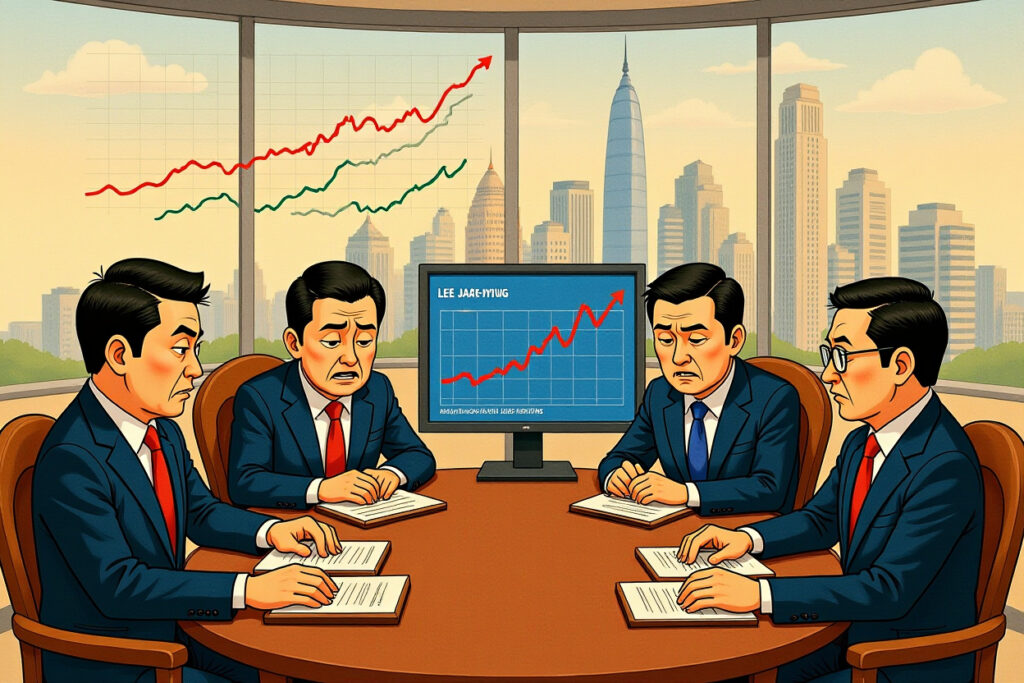Executive Summary
BYD Company Limited (比亚迪) Executive Li Yunfei (李云飞) addressed Berkshire Hathaway’s recent divestment of BYD shares, framing it as a routine market activity rather than a reflection of the company’s fundamentals. This response highlights key themes for global investors monitoring Chinese equities:
- Market liquidity and diverse investor strategies are natural components of stock trading.
- BYD’s operational performance and innovation pipeline remain strong despite high-profile share sales.
- Regulatory and macroeconomic factors in China continue to shape foreign investment flows.
- The incident offers insights into how Chinese firms manage international investor relations.
- Long-term growth prospects for China’s electric vehicle sector stay robust.
Berkshire’s BYD Exit: A Normal Market Event
Berkshire Hathaway’s gradual sell-down of its BYD stake has captured global attention, but BYD’s leadership maintains perspective. Li Yunfei characterized the move as part of typical investment cycles, where ‘stock investment has buying and selling—it’s a normal matter.’ This calm response underscores a mature approach to capital market fluctuations.
Context of Berkshire’s Investment History
Berkshire Hathaway first invested in BYD in 2008, acquiring 225 million shares at HK$8 per share. Over the years, this investment grew significantly, peaking during the electric vehicle boom. Recent filings show Berkshire reduced its holding to below 10%, triggering market speculation. However, Li’s comments reframe this as a predictable portfolio adjustment rather than a strategic withdrawal.
BYD’s Performance Amidst Investor Rotation
Despite Berkshire’s exit, BYD’s operational metrics demonstrate resilience. The company reported a 92% year-on-year increase in vehicle sales for the last quarter, solidifying its position as a global EV leader. Financial results show revenue growth exceeding analyst expectations, supported by expanding market share in Europe and Southeast Asia.
Strategic Initiatives Driving Confidence
BYD continues to innovate with new battery technologies and expanded production capacity. Recent launches like the Yangwang U8 luxury off-roader and Seal sedan have received positive reviews, enhancing brand perception. These developments suggest that corporate fundamentals, not shareholder changes, dictate long-term value.
Implications for International Investors
Berkshire’s partial exit offers lessons for global institutions investing in Chinese equities. Market liquidity enables entry and exit at scale, but requires nuanced understanding of local context. Li Yunfei’s statement reinforces that trading activity should not overshadow operational performance.
Regulatory and Macroeconomic Backdrop
China’s regulatory environment for foreign investment remains stable, with recent policies encouraging high-tech manufacturing. The Ministry of Industry and Information Technology (工业和信息化部) continues to support EV adoption through subsidies and infrastructure development. These factors create a favorable ecosystem for companies like BYD, irrespective of individual investor actions.
Broader Market Sentiment and Sector Outlook
The electric vehicle sector in China is experiencing robust growth, with BYD at the forefront. Competitors like NIO (蔚来) and XPeng (小鹏) also show strong performance, indicating healthy industry dynamics. Global demand for EVs continues to rise, positioning Chinese manufacturers for sustained expansion.
Expert Perspectives on Investor Behavior
Financial analysts note that large-scale investors often rebalance portfolios based on valuation metrics and sector rotations. Berkshire’s move aligns with this pattern, rather than indicating diminished confidence in BYD’s prospects. Market veterans emphasize that diversified ownership can enhance stock stability over time.
Forward-Looking Analysis for Global Stakeholders
For institutional investors, BYD’s response to Berkshire’s exit provides a case study in corporate communication during volatility. The company’s focus on operational results and strategic milestones offers a blueprint for maintaining investor confidence. Li Yunfei’s reassurance that ‘stock investment has buying and selling—it’s a normal matter’ reflects a balanced view of market mechanics.
Looking ahead, BYD’s expansion into global markets and ongoing innovation in battery technology present significant growth opportunities. The company’s vertically integrated supply chain provides a competitive advantage, reducing dependency on external suppliers. These strengths suggest sustained potential for value creation, independent of short-term share price movements.
Global investors should monitor BYD’s quarterly earnings, new product launches, and international expansion efforts. While high-profile share sales attract attention, underlying business performance remains the critical indicator. Diversified investor bases often contribute to market efficiency, allowing capital to flow to where it is most effective.
In summary, BYD’s calm and reasoned response to Berkshire Hathaway’s divestment highlights the maturity of China’s equity markets. The company’s continued focus on innovation and growth underscores the long-term investment case for Chinese EVs. For sophisticated investors, this episode reinforces the importance of looking beyond headline transactions to fundamental value drivers.




